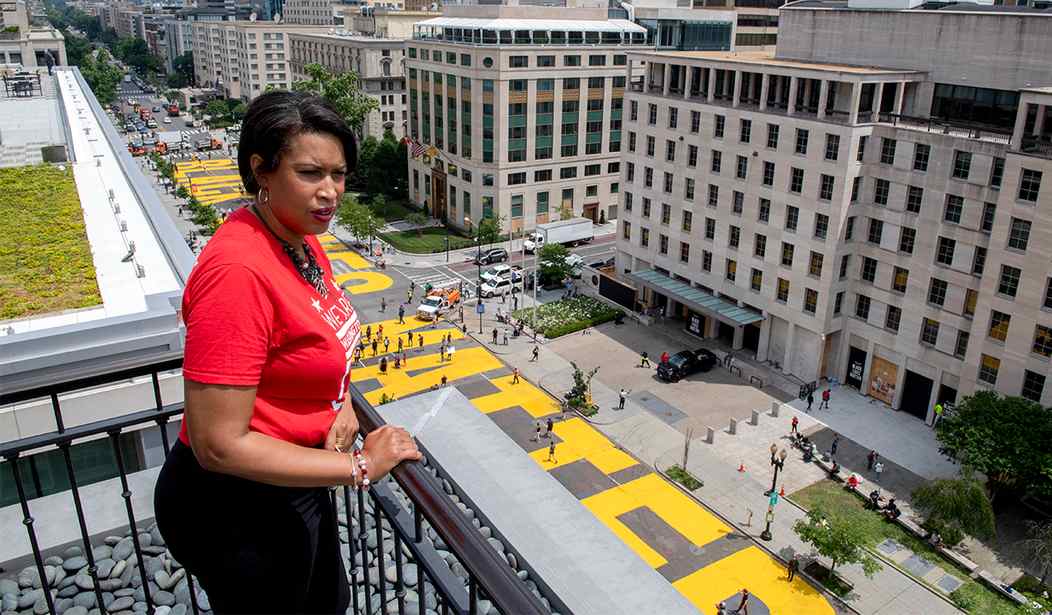It’s shaping up to be a long, hot summer in Washington, D.C. Last year saw the largest number of homicides in the city in 16 years, and so far this year, the numbers are even worse, with at least 73 homicides already reported this year. While D.C. officials are still talking up their desire for more federal gun control laws, they’re also rolling out a new program designed to reduce violent crime without putting any more gun laws on the books.
The Building Blocks D.C. program is meant to focus on the most violent parts of the city, and aims to curb shootings through a variety of means, none of which involve placing new restrictions on the right to keep and bear arms.
It is a new initiative, announced in February, that uses an emergency operations center (EOC) to pull recourses across city government to address the needs of communities most impacted by gun violence.
The model was based on the success the city saw with navigating the COVID-19 response using an EOC model.
The program focuses on 151 blocks deemed to be the most violent and started with those in Anacostia.
“We really talked to the residents about what they wanted to see for their community and developed a neighborhood action plan with them that they thought identified how the government could help,” Harllee Harper explained.
In some cases, the plan addressed public safety concerns, such as adding speed bumps along streets gunmen use to quickly getaway after a shooting, for example.
Building Blocks D.C. also engages with people who are known to bring violence into the communities by addressing their needs too. This is accomplished by connecting those folks to job opportunities, helping them get licenses/IDs reinstated, etc.
“What we do know is that we have some residents who have some needs that have been overlooked for a really long time that we are working with and wanting to invest in by providing programs and services and supports and opportunities to those persons and also addressing the environmental needs in those communities,” Harllee Harper said
Personally, I’m rooting for the success of the program, though I admit that I have my doubts about how effective it’s going to be. While I don’t have any problem with helping to turn individuals away from violence, the Building Blocks program seems to be all carrot and no stick. It’s fine and good to help at-risk individuals find a job, or to get a drivers license or a GED, but these efforts are only going to have an impact on those who want the help.
What happens to those who refuse the helping hand and continue to wreak havoc in their neighborhoods? One effective way of combatting the continued violence is to refer criminal cases against the most prolific and violent offenders to the U.S. Attorney for federal prosecution, but city officials have been demanding that these cases remain in the local courts, where those sentenced are far more likely to receive shorter sentences than they would have if they were prosecuted by federal officials.
The “felon-in-possession” initiative, announced in 2019, allows prosecutors to move gun cases from D.C. Superior Court to federal court, where defendants face stiffer penalties. The measure has the support of D.C. Police Chief Robert J. Contee III but is opposed by D.C. Attorney General Karl A. Racine. The D.C. Council has also criticized the policy for undermining local gun laws and the District’s “work to focus on reducing racial disparities in policing and criminal justice.”
I don’t buy the argument that prosecuting felons caught with a gun “undermines local gun laws,” but frankly, many of those laws should not only be undermined but taken off the books entirely. Why would the District want to focus on non-violent, possessory gun offenses when the real issue is that a growing number of criminals in D.C. are pulling the trigger on city streets with impunity?
D.C.’s approach to gun control and violence prevention has been backwards for as long as I’ve been alive; cast a wide net of gun control laws over everyone in the hopes of ensnaring a criminal here or there. I’m glad to see the city taking a somewhat different approach, but beyond the speed bumps and mobile rec centers, if folks like Mayor Muriel Bowser really want to address the root causes of violence they also need to be fostering a culture of legal gun ownership. For decades the city has tried its best to make gun ownership taboo, and we’ve seen the results. Why not bring in activists like Tony Simon or Maj Toure to offer basic gun safety and training classes? Why not help educate residents on what they need to legally own and carry firearms in our nation’s capitol? Heck, why not spend some money on a publicly-accessible gun range so that residents can obtain the training required to keep and bear arms without having to drive to Maryland or Virginia to get it?
Because D.C. officials don’t like guns, that’s why. They continue to view guns themselves as the problem, instead of the individuals committing violent crimes. As long as that ideology is guiding the decisions made by the mayor, city council, and prosecutors, I don’t harbor much hope that projects like Building Blocks D.C. are going to have the impact that the politicians are hoping for.









